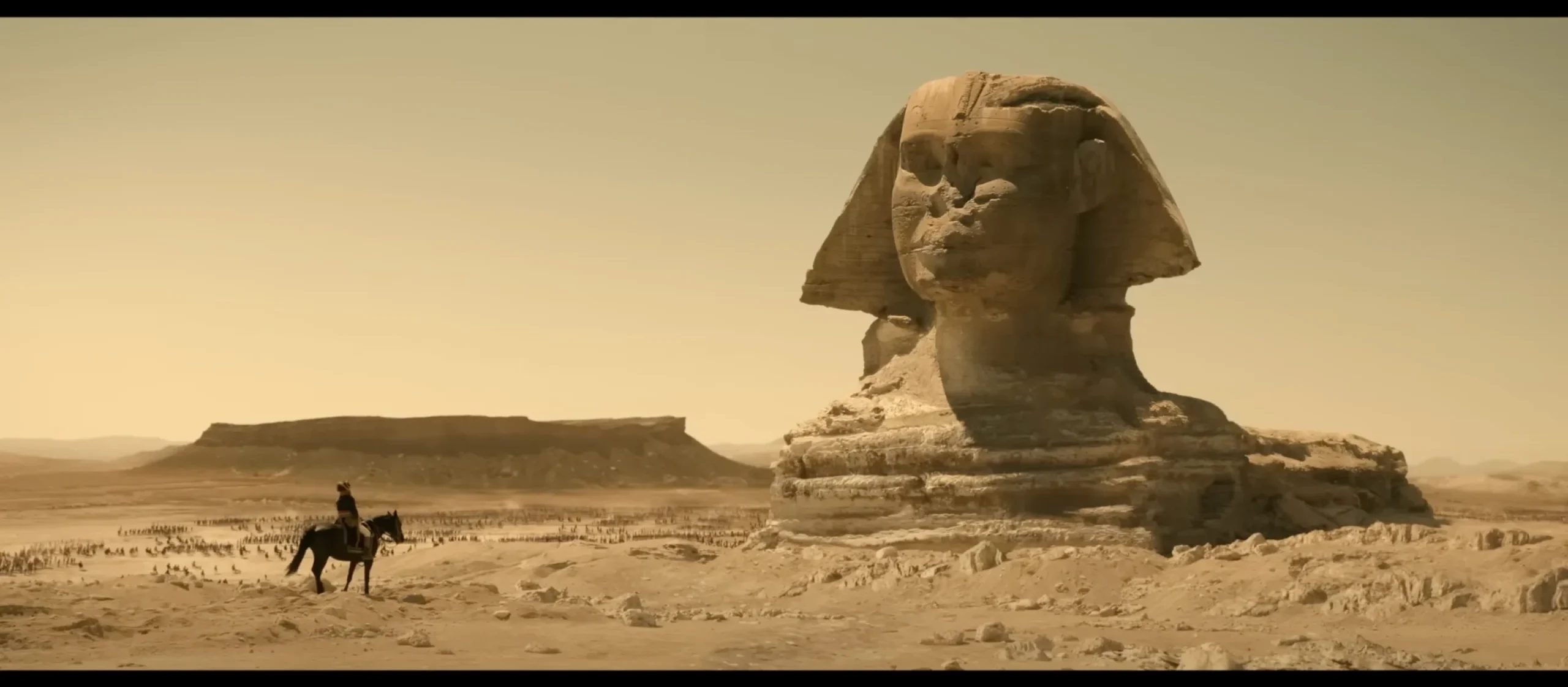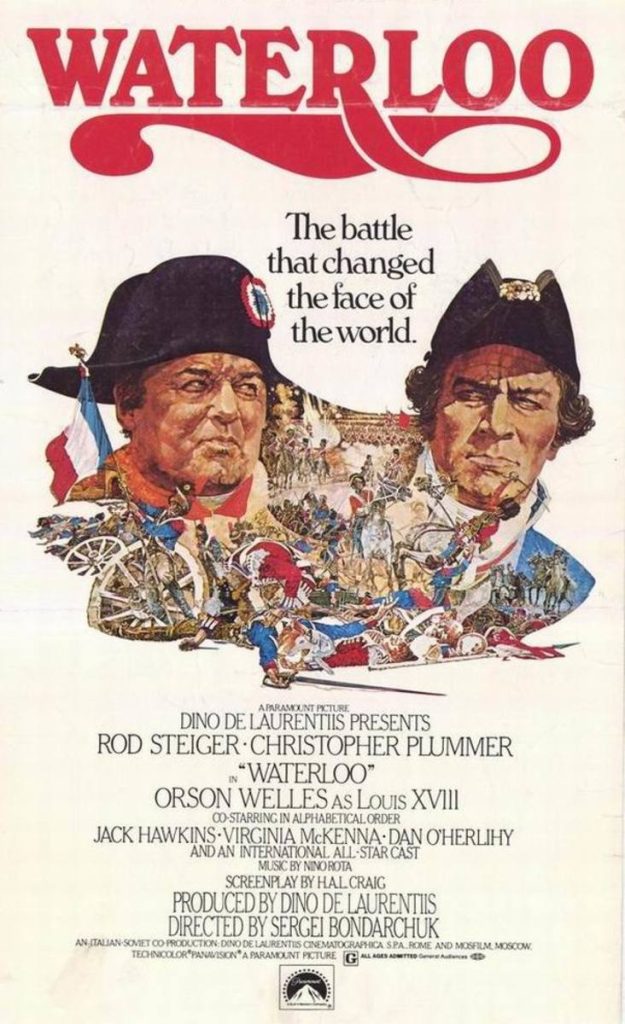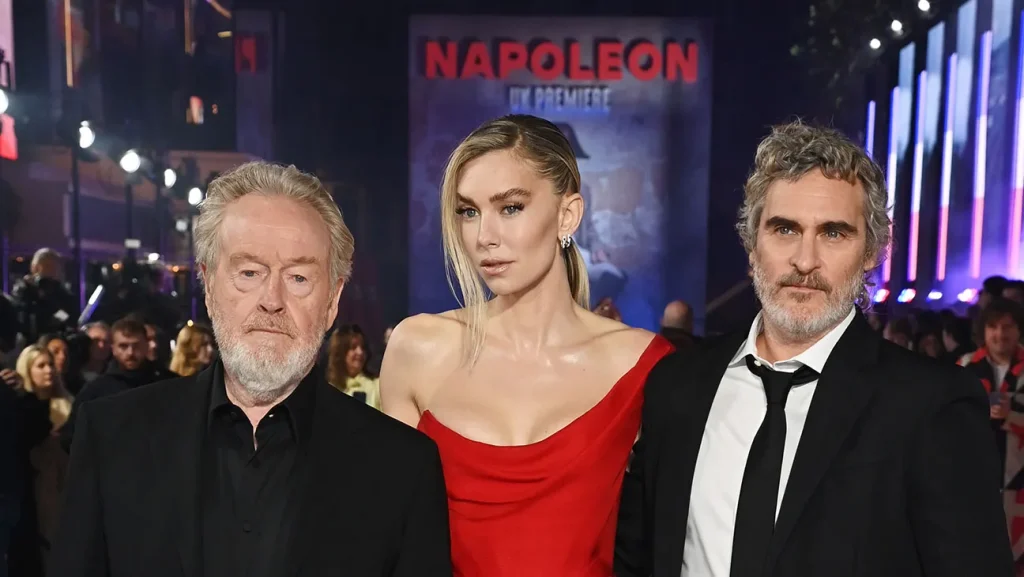
On November 25, I decided to spoil myself by watching the new movie Napoleon by Ridley Scott. It was my birthday, you see. In the aftermath, I couldn’t make up my mind whether I liked it, so I waited before writing anything, till I got a chance to watch the far superior Rod Steiger movie Waterloo (1970).
By Emad Aysha
I think you can guess which movie I liked more. It’s not just that the older movie could accomplish more without today's resources – CGI, modern cameras, special effects – but that the true heart and soul of the film, from the first scene, is Rod Steiger.
At the same time, the handicap of the new movie is likewise the actor playing the central character – Joaquin Phoenix. He’s a great actor, and any failures here I chalk down to the direction, but even if he was correctly directed, he still couldn’t match Steiger in a million years!
The concept of Joaquin Phoenix in the movie is wrong. Instead of a charismatic megalomaniac military genius, you get a weakling opportunist who rises through the ranks through politicking and connections, not proven ability at leading men and turning the tables to his advantage.
Rod Steiger’s Napoleon, I’d wager, is the honest Napoleon, and the performance is lightning-sharp.

FILMS IN COMPARISON: The old Rod Steiger movie is both accurate and thrilling. The new one apparently isn't either!
You see him breathing quickly when he is being told the bad news that he has to surrender or else he defies with his booming. But unlike Hitler, a man suffering from delusions of grandeur, when he sees that his reinforcements have been defeated, he surrenders for the sake of the country.
Something Hitler would never do, taking the coward’s way out by committing suicide after making the whole damn government nd country commit suicide. Napoleon was the real deal, somebody who was grand.
The scene where Steiger abdicates in front of the old guard is heartbreaking. His voice is rugged and broken but still booming, like a theatre actor’s. And rightfully so, since they didn’t have loudspeakers back then. You hardly hear Phoenix’s voice in this feature, even when he’s angry at his wife, which is the only time he ever does get angry.
He’d reduced to a likable buffoon and nothing more. How on earth could someone like that inspire his troops, the public, and, more importantly, his commanders in the field to follow him to hell and back? He couldn’t, and that’s the single most significant failure of Ridley Scott’s otherwise good movie.
Not to mention that Phoenix’s Napoleon is a lowly artilleryman with a couple of sneaky tricks up his sleeve, but no more. How on earth was he able to outsmart the Austrians and Russians at Austerlitz and slaughter their army in a turkey shoot? A real general has battlefield instincts, can guess what the opposite army is getting up to and its actual state, and can see the whole battle panning out in his head and keep track of all the movements and counter-movements. Not to mention, pick the correct locale for victory. How can a mere artilleryman do that?
He can’t; that’s the whole point. Again, the problem here seems to be the director. He wants Napoleon to be a man of the people, a lackluster everyman, to appeal to the mundane masses. We saw this in Oliver Stone’s Alexander (2004), turning Collin Farrell into a sourpuss, and the same holds here. It’s a problem inherited from the 1990s. (Check out Billy Wilder's Sabrina compared to Sidney Pollack's).
I’d also wager that Ridley Scott wants to get even with the upper classes in English history and world history. Why else would he make Christian Bale a working-class ruffian version of Moses in his ridiculous and racist Exodus: Gods and Kings (2014), a movie I stupidly defended at one point in time?
Moses, someone raised in the house of Pharaoh who can’t even shave appropriately in a culture that saw hair as being unclean? Nobody has any etiquette in Napoleon, surprise, surprise.
There’s also Freudian psychology, with Napoleon’s wife and, critically, his mother telling him what to do all the time, even in the bedroom. And stupidly so. He’s nervous and has to drink to do it with a girl and see if he can get her pregnant, whereas he had no hesitancies previously betraying his wife with other women.
There’s lots of political correctness, too. You have a high-ranking black officer, a black maid, and even a black servant girl playing with an aristocratic white girl, which seems highly unlikely.
The real highlight of this movie, apart from the battle of Austerlitz and the underwater cameras beneath the ice, was Vanessa Kirby as Lady Josephine. She’s a sexy, sassy woman, perfectly cast for this aristocratic role and a clear stand-in for France, a country forced to resort to degrading methods to survive during the revolution and then periodically neglected by the piss-ant general we see here. The humor is perfect, too, and the gore is obscene but believable, given the world back then. (Poor Mary Antoinette).

MÉNAGE À TROIS: The director Ridley Scott, Vanessa Kirby and Joaquin Phoenix. Ascending or descending in quality I wonder?
The visuals are great, as is expected from a Ridley Scott movie, but even here, there are problems. The obsession with historical accuracy means candles and natural sources of light as you see in the superior Barry Lyndon (1995). Still, it gets to the point that you can’t see people’s faces at critical junctures in the story. And people are so damn stationary here half the time when somebody moves; you leap out of your socks from fright.
I can’t tell if there’s a political subtext in this movie, maybe how war is used to usurp democracy, with tongue-cheek references to what happened at Capitol Hill in the US. A similar scene occurs here. Russians are poorly portrayed, too. But that still doesn’t forgive it for its multiple flaws. By all means, watch the movie. There’s plenty of good in it, but the original is so much better. And the humor in the original is excellent, too, without being pathetic.
Oh, one last plus point. Scott does at least make the French out to be blonde and the Russian Tsar, too. Hurrah for historical accuracy!






